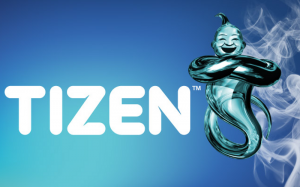 While Google’s Android has established its niche in the market as an open platform, there are partners who have griped about certain restrictions, including the inability to make any overtly significant changes to the underlying OS. In that respect, the Linux-based Tizen operating system has been widely seen as the more open alternative and will soon see its first smartphone hit the markets thanks to its partners, handset manufacturer Samsung Electronics and Japanese telecommunications carrier NTT Docomo.
While Google’s Android has established its niche in the market as an open platform, there are partners who have griped about certain restrictions, including the inability to make any overtly significant changes to the underlying OS. In that respect, the Linux-based Tizen operating system has been widely seen as the more open alternative and will soon see its first smartphone hit the markets thanks to its partners, handset manufacturer Samsung Electronics and Japanese telecommunications carrier NTT Docomo.
Intel, one of the most recognized names in the market of PC processors and chips, partnered with Samsung for the development of the Tizen operating system: a platform which emerged into the spotlight soon after Meego, a Nokia endeavour in collaboration with Intel, ultimately collapsed. The development is being overseen by the Linux Foundation and there have been several plans for the versatile operating system, including its incorporation in television sets and tablet computers.
The platform, primed to rival Android and Apple’s iOS, has also attracted the interest of UK carriers Vodafone and France Telecom, according to a report by Japan’s Daily Yomiuri. There have been concerns of operating systems like Android and Apple’s iOS being too powerful in the present market and various companies have looked into Tizen as being one of the best candidates to give these two dominating platforms a run for their money.
The partner companies have their own motives for pushing the new platform into the race. NTT Docomo is the only major Japanese carrier to not sell the iPhone which has resulted in some considerably worrisome subscriber losses. If the new platform is successful in the markets, it could be instrumental in the reversal of the carrier’s recent misfortunes. Samsung, on the other hand, is one of the dominating leaders of the smartphone market and has seen considerable success due to the rising popularity of its Android-run handsets. It has, however, taken an interest in branching out and picking up other operating systems like Microsoft’s Windows Phone operating system, which unfortunately hasn’t attracted the same kind of success for Samsung.
If Tizen attains the kind of success that its developers are hoping for, Samsung will have another successful operating system backing its devices and NTT Docomo will have enough subscribers to comfortably make up for its recent losses. Although the Tizen operating system is still very fresh, and could take some time to pick up some traction, it is one of the most rooted for underdogs primed to compete against the current duopoly that is dominating the smartphone industry today.